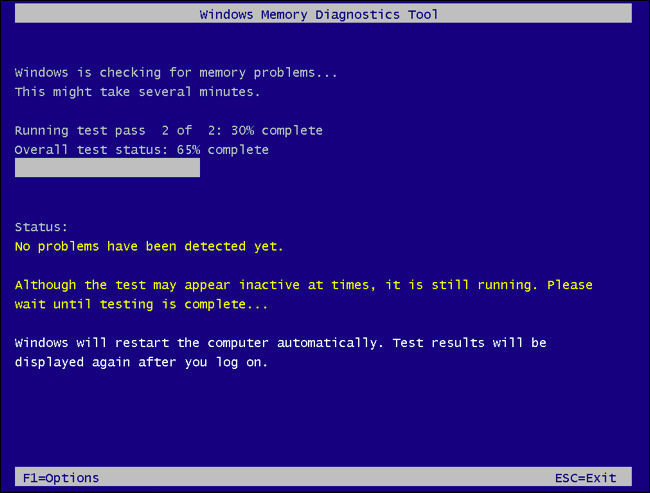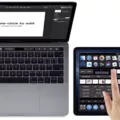If you are a computer user, you likely understand the importance of hving a computer that runs efficiently. One of the most important factors in determining your computer’s performance is its RAM speed. RAM (Random Access Memory) is a type of memory used in computers to store data and instructions for quick retrieval. By testing your RAM speed, you can determine if your system is running at peak performance or if there are any issues that could be causing it to slow down.
Fortunately, there are several free RAM speed test tools available online to help you assess your computer’s memory performance. These tests measure the amount of time it takes for data to be stored and retrieved from the RAM, providing an indication of how quickly your computer can access information. It’s important to note that while RAM speed tests provide an accurate measure of memory performance, they don’t take into account other aspects such as graphics cards or hard drives which can also affect overall system performance.
When running a RAM test, it’s important to ensure that all other programs on your computer are closed so that no additional processes are running duing the test and affecting the results. Additionally, it’s recommended that you run multiple tests over time in order to get an accurate average reading for your system’s performance. This will allow you to identify any potential issues as well as track improvements after making any upgrades or adjustments to settings on your computer.
It’s also worth noting that different types of operations require different levels of RAM speed; for example, intensive tasks like gaming or video editing may require a higher level than lighter tasks like web browsing or word processing. Knowing this information can help inform which upgrades shuld be made if necessary.
Overall, regular testing of your system’s RAM speed is essential for maintaining optimal performance and avoiding potential problems down the line. There are several free online tools aailable which make this process quick and easy so there really isn’t any excuse not to give it a go!

Checking RAM Speed
To check your RAM speed, press Ctrl + Shift + ESC simultaneously on your keyboard. This will open the Task Manager window. From there, go to the Performance tab and select Memory. This will show you the current RAM speed of your PC. It is important to note that this number is listed in megahertz (MHz), which means it’s a measure of frequency. The higher this number is, the faster your RAM will be able to process data and run applications. If you need to upgrade your RAM, make sure you get one with a higher MHz rating than what you curently have installed in your system.
What is the Optimal RAM Speed for Optimal Performance?
Good RAM speed depends on the type of RAM you have. For DDR4 memory, 2,400MHz (2400MT/s) is a good speed to aim for. If you have DDR3 memory, then look for memory operating at 1,866MHz or higher, with 2,000MHz being even better. Generally speaking, the faster your RAM operates the better performance you will get from your system.
Is 2666MHz RAM Sufficient for Gaming?
2666mhz RAM is more than enough for gaming. It is the standard speed for most modern CPUs and won’t bottleneck your performance. Intel CPUs don’t benefit as much from faster RAM, so 2666mhz should be more than adequate. AMD CPUs may perform better with faster RAM speeds (3200 or higher) but 2666mhz is still a good option for budget-minded gamers. Regardless of your CPU, 2666mhz will give you solid performance in most games.
Is 2133MHz RAM Suitable for Gaming?
2133 RAM is perfectly fine for gaming and most applications. It’s the baseline frequency for most modern systems, and won’t bottleneck your performance in any way. However, some games may benefit from higher memory frequencies such as 3000MHz, so if you’re looking to get the best performance out of your system then it may be worth investing in faster RAM. The price difference beween 2133 and 3000MHz is usually quite small, so it could be a worthwhile investment.
The Impact of RAM Speed on FPS
The answer to this question is that RAM speed can indeed help improve FPS. This is because the faster your RAM modules are, the more data that can be read and written in a given period of time, which can increase the performance of your computer’s components. In general, faster RAM modules mean faster loading times and better multitasking performance. As far as gaming is concerned, having faster RAM can result in smoother gameplay with fewer frame drops and stutters. However, it should be noted that RAM speed is only one factor to cosider when looking to improve FPS; other factors such as graphics card, processor, and storage type will also have an impact on FPS.
Comparing the Speed of DDR4 and DDR5 Memory
Yes, DDR5 is faster than DDR4. Intel’s 12th generation of processors support DDR4 speeds up to 3200 Megatransfers per second (MT/s) and DDR5 speeds up to 4800 MT/s, meaning that DDR5 can transfer data at up to 38.4 Gigabytes per second (GB/s), whih is 50% faster than the maximum data rate of 25.6 GB/s for DDR4. This makes DDR5 an ideal choice for applications that require higher performance and faster data transfer rates.
Does RAM Speed Impact Performance?
Yes, RAM speeds do matter when it comes to system performance. RAM is responsible for storing and quickly retrieving data and instructions that the CPU needs to execute programs, so faster RAM can improve the overal performance of a system. When the CPU requests data from RAM, the speed at which the data is delivered can become a bottleneck if the RAM is too slow. A faster RAM module will allow the CPU to fetch data more quickly and thus increase system performance.
Compatibility of 3200MHz RAM With 2666MHz RAM
Yes, you can use 3200MHz RAM with 2666MHz RAM, but the 3200MHz RAM will run at the speed of the RAM with the lowest clockspeed in your system, which would be 2666MHz. This means that all of your RAM will be running at a slower speed than if you had two sticks of the same type and speed. For optimal performance, it is recommended to use two sticks of RAM with the same speed and type.
Using 2133 and 3200 RAM Together
Yes, you can use 2133 and 3200 RAM together. The 3200 RAM will automatically throttle down to match the speed of the 2133 RAM. It is important to also make sure that both RAM sticks have the same data rate, otherwise they may not be able to work together. Additionally, if you are using an Intel processor, you may need to update your BIOS in order for the two different speeds of RAM to be compatible and function properly.
What Type of RAM is 2133 MHz?
2133 MHz RAM is DDR4. DDR4 is the latest generation of DDR RAM and is generally faster than and not compatible with DDR3. It offers higher clock speeds, higher data transfer rates, and lower power consumption compared to DDR3. It also uses a different physical form factor, so it won’t fit into a motherboard designed for DDR3 RAM.
Is 3600MHz RAM Beneficial for Gaming?
Yes, 3600MHz RAM is a great choice for gaming. It offers a significant amount of bandwidth, whch is ideal for games that need to process large amounts of data in real-time. This type of RAM allows your CPU to operate more efficiently and can help improve game performance. With 3600MHz RAM, you’ll be able to enjoy faster loading times and smoother gameplay overall. Additionally, if you’re using an AMD processor, having 3600MHz RAM allows your CPU to take full advantage of its capabilities.

Impact of 16GB RAM on FPS Performance
16GB of RAM can provide a noticeable boost to gaming performance compared to 8GB, with many games being able to run at up to 108 frames per secod (FPS). This is especially true for games that require high levels of multitasking, such as open world RPGs or first-person shooters. Additionally, 16GB of RAM can help with increasing the overall graphics quality and resolution while still keeping up a steady frame rate.
The Impact of 16GB RAM on FPS
In general, 16GB RAM may slightly improve FPS in more demanding games. However, the improvement is usually marginal and may not be noticeable to most players. In fact, gaming experts have found that there is usually no significant difference in performance between 8GB and 16GB RAM. Therefore, if you don’t need the extra RAM for multitasking or more intensive tasks, it may not be worth the cost of upgrading from 8GB to 16GB RAM.
The Benefits of Higher RAM Speed
Yes, higher RAM speed is generally better. The faster the RAM speed, the more efficient your system will be when working with large files or performing computationally intensive tasks. A higher RAM speed also allows for faster data transfer between the CPU and memory. This means that tasks will be completed in a shorter amount of time. Additionally, hving a higher RAM speed can help reduce latency and improve the overall performance of your computer system.
Conclusion
A RAM speed test is an important tool for any computer user. It can help identify potential issues with memory performance and provide helpful insight into the overall performance of a computer. The test works by measuring the time it takes for the computer to read and write data from random access memory, or RAM. The results of a RAM speed test will give users an indication of how fast their computer can access RAM, which can be beneficial when determining if hardware upgrades are necessary or if cerain software applications require more RAM resources than what is currently available. Additionally, having accurate information about RAM speed can help users make more informed decisions when purchasing new hardware or software.








